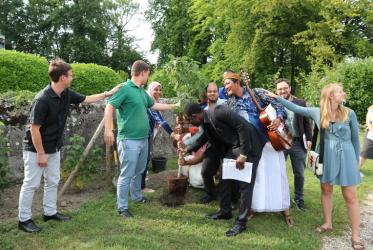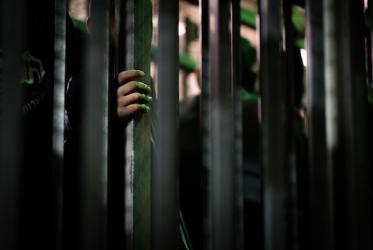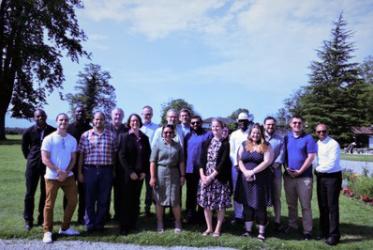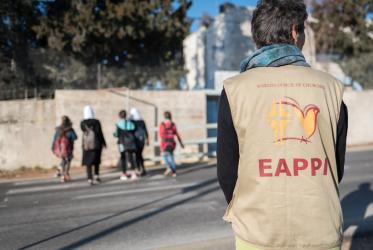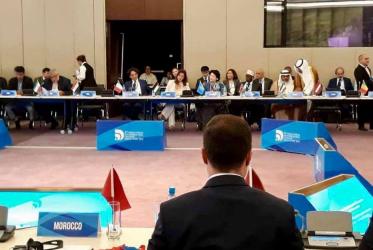Displaying 141 - 160 of 562
22 July 2019
Bossey gathers students for interreligious dialogue
02 July 2019
Peacemakers at work in Sri Lanka
29 April 2019
Shabbat dinner ‘helps humanize two sides of the story’
27 March 2019
Peace is common denominator of all major religions
05 March 2019
